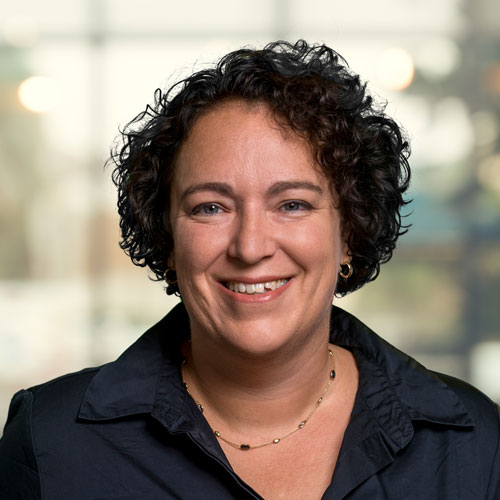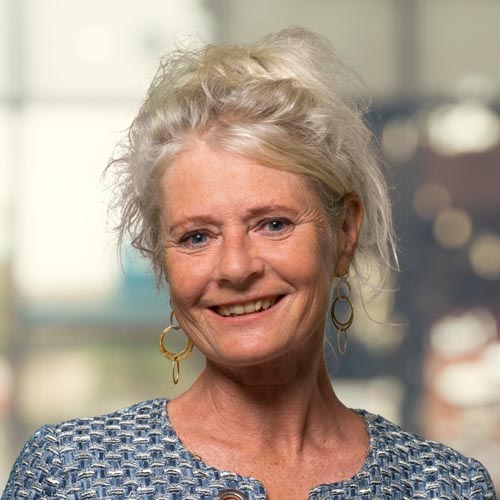
Resilient youth and parents
Every year in the Netherlands, around 49.5 thousand couples with minor children end their relationships. Divorce is a drastic event for both parents and children. Therefore, we developed preventive intervention training for issues surrounding divorce, such as the DivorceATLAS, and the Children of Divorce Intervention Programme. This is how we increase the resilience of parents and their children.
Healthy upbringing
A healthy upbringing gives children the opportunity for a broad development, based on a safe home, at school and beyond. The chain of young people’s healthcare and other institutions supports parents in raising their children. We are exploring ways in which this support can be optimised. We are addressing the following issues:
- How do support providers identify those families that might benefit from such support?
- Which interventions are effective?
- What are the practical components in an effective approach?
- What are the deficiencies in the service, and how do we remedy these?
- How do we organise the care chain more efficiently in order to provide the best support for families?
“At TNO, we research the effectiveness of the help offered, and look at how we can organise the care chain as efficiently as possible.” Minne Fekkes, senior researcher at TNO Child Health and endowed professor of social skills and resilience at the University of Amsterdam.
Want to know more about our work and the results?
Download the e-brochure 'All opportunities for children' here
Strengthening youth resilience
Resilience helps children deal with challenges in their lives. And it contributes to positive social-emotional development. We are committed to increasing the resilience of children of all ages (pdf). Together with various partners, we work on the development and implementation of evidence-based intervention programmes. We ensure that these intervention programmes meet the needs of the professionals offering these interventions. And the needs of the 'end users' (young people and parents).
White paper on strengthening youth resilience
We develop and implement evidence-based intervention programmes to increase the resilience of children. Would you like to know more about which aspects are crucial for the successful development and implementation of this type of intervention? Read our white paper 'Bring it on: Strengthening youth resilience for a safe, healthy and promising future'.
Children's Advisory Council
But, what do the children themselves actually think about resilience? This issue has not yet been addressed in our white paper. We do, however, believe that it's important to include children's opinions on this issue. That is why we have asked the Children's Council for their opinion on this subject. The advice on resilience by the Children's Council (pdf) was born out of this.
Research programme on social skills and resilience
In a major research programme, we focus on the effective strengthening of social skills and resilience. We incorporate the results into intervention programmes and practical tools, and in the training of professionals. This allows us to use the most effective interventions in specific problem situations. Consider the following methods:
- overcoming speech anxiety in children through 'gradual exposure'
- transforming negative thoughts into supportive ones through cognitive behavioural therapy
- practising target behaviour that teaches children social skills
Preventive approach to divorce issues
For decades, counselling literature has categorised divorce as being, apart from the death of a partner, the most stressful life event an adult can experience. We also know from research that the impact of divorce on children is huge. On average, these 'children of divorce' perform less well at school, exhibit more behavioural problems and score lower in the social-emotional field. Until recently, the only theoretically sound interventions were for children aged 8 to 12. A scientifically substantiated offer for younger children in divorce situations was particularly desirable. We have therefore developed a solution called the Children of Divorce Intervention Programme.
Children of Divorce Intervention Programme
The Children of Divorce Intervention Programme is based on results from scientific research, and focuses on the prevention of divorce-related problems. In international research, the programme has proved effective in preventing both the internalising and externalising of problems. It offers various modules, including those for years 1 to 4 of primary school. In cooperation with partners in the field, we have developed Dutch adaptations for the age groups 4-6 years (Tough Turtles (Stoere Schildpadden)) and 6-8 years (Brave Dinos (Dappere Dino's)). During 12 group meetings, attention is focused accessibly on:
- discussing divorce-related feelings
- learning to deal with unrealistic perceptions and attitudes towards divorce
- strengthening the problem-solving skills of participating children
Read more about the intervention programme 'Tough Turtles and Brave Dinos'.
Tough Turtles and Brave Dinos
Tough Turtles and Brave Dinos has been positively evaluated several times. With thanks to research funding by ZonMw and Stichting Kinderpostzegels Nederland. The children enjoyed the programmes, and considered the group to be a safe place to discuss their feelings. They made new friends and found new ways to solve problems. Increases were measured regarding the positive functioning and well-being of the children, together with decreases in social-emotional problems.
Awards and recognitions
- ZonMw awarded us a Pearl Award for our Brave Dinos research.
- The Effective Youth Interventions Databank recognised Tough Turtles as being theoretically sound. And Brave Dinosaurs as effective, due to the excellent instructions.
- The Benelux Trademark Registry registered both interventions as a trademark™.
- The Healthy School included Brave Dinos as an intervention.
More information?
Want to help children and become a group leader?
Would you like to be able to support children of divorced parents? Then sign up as a trainer.
Teenagers and divorce
Tough Turtles and Brave Dinos are aimed at young children. But what do teenagers of divorced parents need? During our research, we found that they like to read a practical book about all the issues they encounter. Which is why, on Divorce Day 2019, we published our workbook 'When your parents split up'.
Workbook ‘When your parents split up’
The book 'When your parents split up' was written by TNO researchers Mariska Klein Velderman and Fieke Pannebakker. The book is intended as a source of information and support. It contains questions and assignments. And a sample diary to help young people put their experiences and feelings on paper. The book is available in bookshops or via the Internet (ISBN 9789057125270).
Support for parents in the event of divorce
Parents who divorce are no longer partners, however, they still remain their children's joint parents. This brings with it additional questions and uncertainties, such as: How do the children experience the divorce? As a parent, how can you help them get used to the new situation? And how do you take good care of yourself and your children? During a divorce, parents often need informed, accessible and light-touch support. That is why we developed the ‘DivorceATLAS’ intervention.
The DivorceATLAS
The DivorceATLAS intervention training course both informs and empowers separated parents. DivorceATLAS offers concrete tools, aimed at supporting children and in their communication with the other parent.
Want to participate in the DivorceATLAS training programme?
DivorceATLAS is unique in that the intervention is available in 2 variants. However, the content of both variants is the same. Parents also use the same handbook for reference. But the form differs per intervention variant.
DivorceATLAS physical group training
The group training programme consists of 2 meetings of 3 hours each. The training takes place in the Haaglanden or Almere region.
More information and registration
DivorceATLAS online training programme
Register on the DivorceATLAS platform and follow the interactive training programme for free. This includes videos by experts and hands-on professionals. The online training programme consists of 6 substantive chapters.
More information and registration
DivorceATLAS awards and recognition
Subsidised by ZonMw, we conducted research into the experiences of parents who used DivorceATLAS. Our researchers followed 65 participants who completed DivorceATLAS online, and 141 participating parents from 25 face-to-face groups. Parents and group leaders responded enthusiastically to DivorceATLAS. Parents gave the training programme an average score of 7.5. They felt informed and supported. The training programme gave parents new ideas, tools for supporting their children, and the impetus to get involved. In 2021, the project received a Pearl award from ZonMw. Some quotes from parents who followed the training programme:
“Support and recognition.” "Clear information and examples." "Wonderful programme. Connects well with the target group." "Understanding what happens to a child after a divorce, but also understanding my ex." "I liked being able to reflect on how we are doing things, and how I would like it to go. It's nice to get some guidance, a sort of roadmap to help think about it."
Want to support divorced parents as a group leader?
Would you like to be able to offer preventative support to divorced parents? Why not! A few times a year, together with the Knowledge Centre for Child and Divorce, we organise qualification opportunities to become a DivorceATLAS trainer.
More information on DivorceATLAS
- Flyer: (pdf) Information group programme DivorceATLAS - Haaglanden (pdf)
- Flyer: (pdf) Information group programme DivorceATLAS - Almere eo (pdf)
- Fact sheet DivorceATLAS (pdf)
- DivorceATLAS low-threshold training for parents after divorce
Anti-bullying policy
To improve the resilience of children, we have also developed anti-bullying policies, and help schools with their implementation. The result is the 'Perfect Anti-Bullying Policy'. The lessons focus on learning skills to better handle bullying situations. And on strengthening pro-social behaviour. This makes children less likely to become victims, and more likely to act as defenders. In addition to a series of lessons for years 1 to 8, the Perfect intervention consists of:
- an e-learning and training course for the entire school staff
- a monitor to identify bullying and at-risk pupils
- various protocols for managing difficult bullying situations
Child abuse
Together with Leiden University, we conducted the National Prevalence Study of Child and Adolescent Abuse. A major study mapping the extent and nature of abuse of children and adolescents aged 0-17 in the Netherlands. In addition, we investigated the nature of the risk factors. In this way we offer help to families before they go off the rails.
Target group participation
Are you a researcher or developer? And do you, like us, work to achieve successful interventions? In our projects to help young people to be healthy and resilient, we cooperate intensively and successfully with stakeholders. Find out more about our successful approach in the Guide to Target Group Participation (pdf). It provides tools for working together with the target group in a meaningful and plan-based way. A good example of where target group participation has been used in practice is the Children's Council (pdf).
Get inspired
Group Care during the first 1000 days makes a difference around the world
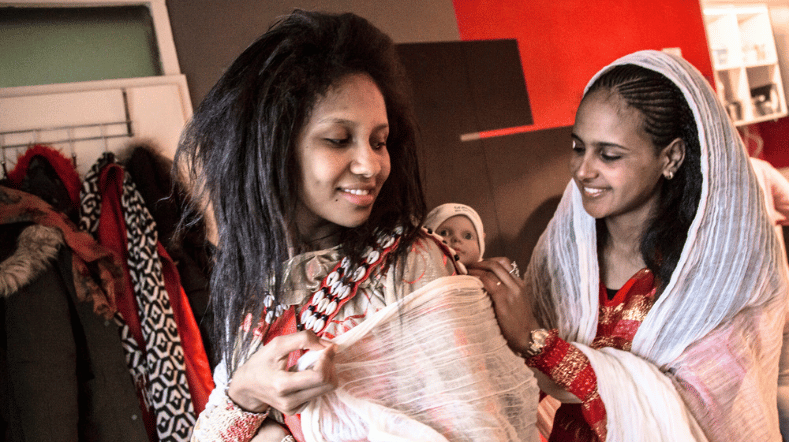

Personalised prevention and health


Eight things to know about the D-score
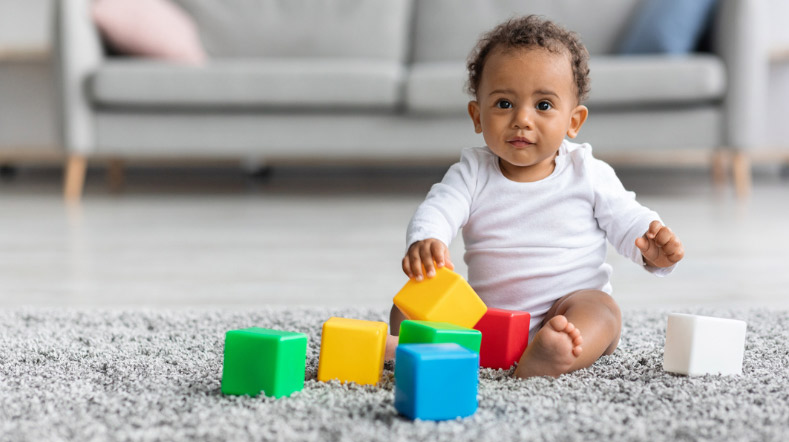

D-score in practice: simplifying the complexity of a childs development
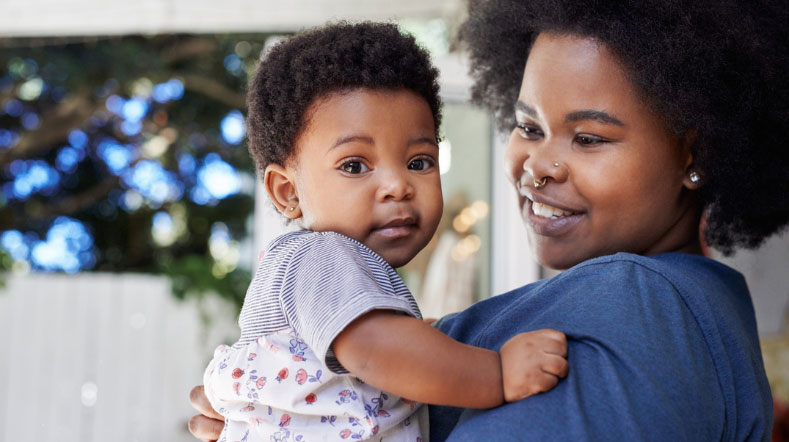

I-JGZ


